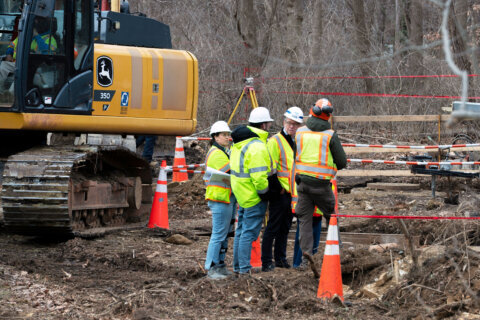New Year’s Day is more than a calendar change in D.C., Maryland and Virginia as several laws take effect in 2022.
DC
D.C. residents can expect reduced noise from grounds care. A ban on selling and using gas-powered leaf blowers will start on Jan. 1, with fines of up to $500 for those caught using the banned blowers.
Restaurants will be banned from dispensing disposable items, such as napkins, utensils and condiments unless customers ask for them or use a self-service area.
Meanwhile, on Jan. 15, vaccines will be required to enter D.C. establishments including nightclubs and restaurants.
Maryland
Maryland’s minimum wage rate will increase to $12.50 at employers with 15 or more employees.
The Maryland Board of Physicians will require a license for genetic counselors and establish a committee for professionals.
Residents of the state who decide to become organ donors will be able to decide if they want their organs donated to research and education or transplantation and therapy.
Protections from excessive medical debt for low-income residents will begin in 2022 according to the law and protects patients making 200% or less than the federal poverty level, around $53,000 for a family of four, The Associated Press reported.
The state’s department of health will be required to provide residents with informational materials to help residents plans for long-term care. The law requires the published material to be ready by April 1 and available in English, Spanish and any other language requested. It also requires that materials be accessible to people with limited literacy skills.
Montgomery County, Maryland
Ezechiel’s Law will require landlords to install window guards in residences where children 10 and under live or if requested by a tenant. The bill was passed after Ezechiel Nguemezi, 2, fell from a third-floor window and died in a Takoma Park apartment building.
On Jan. 12, the county attorney will be required to submit a report each year that summarizes details of each settlement entered into by the county. These settlement agreements will then be published on the county’s website and apply to all county agencies and include the police department.
Virginia
The state’s hourly minimum wage will increase to $11 an hour effective Jan. 1.
Starting January, a resident of Virginia who doesn’t have legal documents will be able to get a special identification card through the Department of Motor Vehicles — including children. In 2021, they gained eligibility for driver’s privilege cards.
Alexandria, Arlington County and Fairfax County instituted a 5-cent tax on disposable plastic bags that will take effect on Jan. 1. The money will finance environmental cleanup and education.
All municipal elections for school boards and city councils in Virginia will shift from May to November for elections held after New Year’s Day.
Homeowners aware that their property is a “repetitive risk loss structure” — any home with two or more claims above $1,000 paid by the National Flood Insurance Program since 1978 — must disclose that fact to a buyer and provide forms to the Real Estate Board.
NBC Washington reported that local school boards must create and adopt policies so school employees can administer stock albuterol inhalers to students that are “believed in good faith to be in need of such medication.” The law would make those administering the medication exempt from liability. Students will also be able to possess and use their own “inhaled asthma medications or auto-injectable epinephrine.”
NBC Washington also reported that liability insurance coverage amounts will increase from $25,000 to $30,000 in “cases of bodily injury to or death of one person,” and from $50,000 to $60,000 in “cases of bodily injury to or death of two or more persons.” More details are available here on the state government’s website.
Public colleges and universities in Virginia can no longer ask questions about criminal history in admissions materials and applications. They also can’t use third-party admissions materials to deny someone admission because of their criminal history. There are exceptions to this law: the Virginia Military Institute and public law schools accredited by the American Bar Association. Universities can still ask about criminal history after an applicant is sent an offer and can rescind offers if they determine someone is a safety risk.
WTOP’s Ivy Lyons, Matt Small, Shayna Estulin, Jessica Kronzer and The Associated Press contributed to this report.






